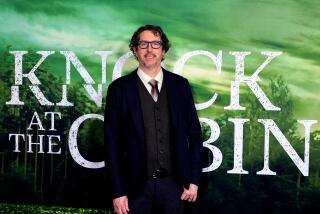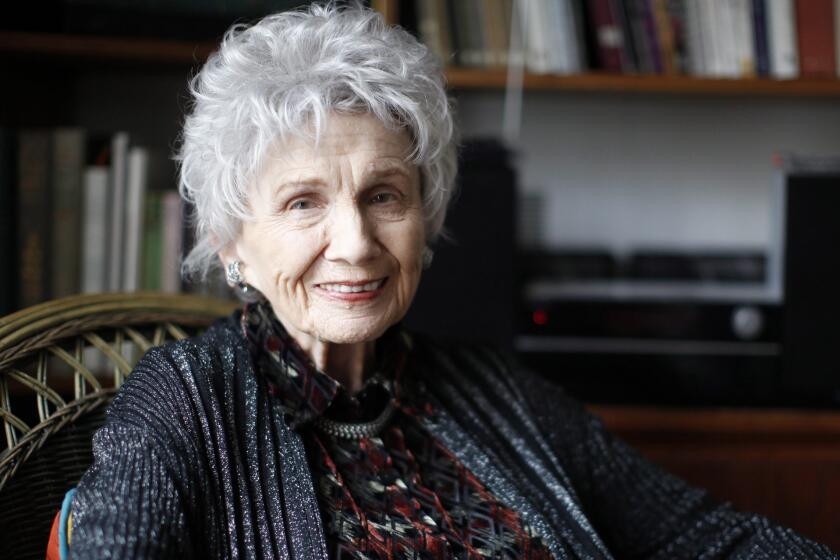HISTORY ON TRIAL: Culture Wars and...
“History is real simple,” Rush Limbaugh announced to his radio audience during the debate over national history standards. “It’s what happened.” For historians, the past is more complex. They not only have to confront the fact that what happened is often in dispute, they must also decide which of the many things that happened to many different people and groups will be part of their focus. What happened during the Revolutionary War differs a great deal when seen from the vantage point of Gen. Washington or that of one of his privates. The meaning of American slavery differs markedly when seen from the perspective of a master, a mistress, a white overseer, a field slave or a house slave. Historians have to decide not only what happened but also what happened to whom and from whose viewpoint.
No one has learned this more surely than the authors of “History on Trial,” an important and accessible book about what transpired when three California professors--Gary B. Nash, Charlotte Crabtree and Ross E. Dunn--helped from 1992 to 1996 to create national standards for the teaching of history. The story of how the authors and their colleagues worked to create standards that would gain the support of diverse groups, from the American Federation of Teachers to the American Historical Assn., makes fascinating and instructive reading.
Their deliberations are not easily summarized, but the debates centered on the degree to which the world history standards would be more than the history of Western civilization and truly reflect multiple world cultures. The debates also concerned the extent to which the American history standards would be inclusive of aspects of American history we are not particularly proud of and the stories of peoples and groups we had previously ignored. Ultimately, about 6,000 “teachers, administrators, scholars, parents and business leaders” participated in drafting the voluntary standards.
The authors were rewarded for their dedication and engagement by a conservative assault that branded them “history thieves” and “hijackers” and compared them to Nazis who were attempting to create a new Hitler Youth. The amount of distortion and deceit that surrounded the reception of what radio commentators such as Oliver North called “the standards from hell” is depressing. What is heartening is that the authors did not give way to despair but struggled with considerable success to correct the gross misrepresentations of what the standards actually said and to revise them in order to mobilize support.
If the authors did no more than give us an account of the creation of and reaction to the national history standards, “History on Trial” would be essential reading. But they do much more. It is a wonderfully clear and concise overview of the changing ways in which Americans have, since the beginning of the republic, perceived and argued about our past. The authors demonstrate irrefutably that “important works of history and new schools of scholarly inquiry have repeatedly triggered controversy.” Americans, they remind us, “have never agreed on a single, unified version of our past, nor should they if our country is to remain democratic.”
“History on Trial” is one of a handful of recent books that finally allow us to understand the contemporary culture wars in a larger perspective. Historians have always had to deal with surprisingly influential people like Mrs. Elwood Turner of the Daughters of the Colonial Wars, who chastised the author of a textbook in the 1940s for trying “to give a child an unbiased viewpoint instead of teaching him . . . my country right or wrong. That’s the point of view we want our children to adopt. We can’t afford to teach them to be unbiased and let them make up their own minds.”
This is a deeply informed, balanced and compelling book that deserves a wide audience. It will both stimulate and equip its readers to think for themselves. Americans, the authors write in their upbeat final chapter, “are liberating themselves from the notion that history is an agreed-upon set of facts and a forever fixed story . . . [and] are coming to understand that history is ‘an ongoing conversation that yields not final truths but an endless succession of discoveries that change our understanding not only of the past but of ourselves and of the times in which we live.’ ”
English historian Eric Hobsbawm, in these thoughtful and knowledgeable essays, “On History,” would agree. “History,” according to Hobsbawm, “is engaged on a coherent intellectual project and has made progress in understanding how the world came to be the way it is today.” In opening to us his historical sensibilities and knowledge, Hobsbawm demonstrates impressive familiarity with many of the world’s cultures and historical periods.
Hobsbawm moves easily through a range of historical approaches, from economic history to the history of mentalities, from narrative to Marxist history. Whatever the approach, he comprehends the importance of penetrating and understanding, rather than merely judging, the “otherness” of those who preceded us. It is crucial “to see . . . how different the sense of time was in the pre-industrial period . . . to discover how different the sense of history was.” Historians, Hobsbawm argues, have an obligation to comprehend the people of the past--especially the everyday people who have been so neglected by historians until recently--in all their complexity, to treat them not as objects but as subjects whose actions and thoughts are worthy of our attention.
Hobsbawm is as concerned with objectivity and relativism as are many conservative contemporary critics. Happily, his reactions are not crippled by exaggeration but tempered with the sophistication and insights of an erudite and influential historian. “We cannot invent our facts,” Hobsbawm insists. “Either Elvis Presley is dead or he isn’t. Either the present Turkish government, which denies the attempted genocide of the Armenians in 1915, is right or it is not.” But these simple polarities don’t exhaust the historian’s responsibilities because “there is no equally unambiguous way to choose between different ways of interpreting the phenomenon or fitting it into the wider context of history.” Precisely. The historian does not merely uncover facts; the historian must make sense of them. This need for interpretation is exactly where the past and the present inevitably mingle and explains why our sense of the past has not been stable but constantly changing or, more hopefully, evolving.
Conservative critics would have us believe that this sense of the unpredictability of the past constitutes a radical departure from traditional historical practice. In fact, it has been an endemic ingredient in historiography. Like the sciences and all other branches of learning, the discipline of history cannot function without expanding its inquiries to previously neglected areas and without constantly revising its conclusions in the light of new knowledge and approaches. “Revisionism,” which conservative critics have tried to turn into an epithet, is, in history and all other scholarly disciplines, not a radical plot but a natural and necessary part of learning and discovery.
It is because Hobsbawm explains the complex historical process so cogently that his essays are valuable. The “proposition that there can be no such thing as a purely objective and value-free science,” he writes, is “now virtually uncontroversial,” but this does not free scholars to make their research serve their own political biases. He understands that the danger of subordinating history to ideology does not reside exclusively or even primarily in French thinkers or radical academics. Why, he asks, “do all regimes make their young study some history in school?” Not, he replies, “to understand their society and how it changes but to approve of it, be proud of it, to be or become good citizens.” Inspirational and ideological history tends to become “self-justifying myth.” It is “the business of historians” to remove these blinders and show how society can benefit from a more complex and truer sense of its past.
Hobsbawm understands that often the most potent pressures upon historians emanate from established authority. “It takes a lot of courage” for historians in Zagreb University to resist attempts “to turn Zvonimir the Great into the ancestor of President Tudjman” or for Japanese historians to resist the authorities’ insistence on a sanitized version of the Japanese war in China. It is difficult, he concludes, “to stand up against the inventors of a national schoolbook history.”
To move from Hobsbawm to Keith Windschuttle’s polemic is an exercise in contrasts. “The Killing of History” purports to describe how contemporary scholars “are murdering our past.” It is a familiar trend.
Americans in the late 19th century had a taste for utopian visions of the sort Edward Bellamy painted in his novel, “Looking Backward” (1888), in which Americans created a just and peaceful society by the year 2000. At the close of the 20th century, we find the opposite phenomenon: the gravitation toward what has been called the dystopian vision of a calamitous future. Books with titles like “The Death of Literature,” “The Closing of the American Mind” and “The Disuniting of America” have painted a dire picture of the collapse of learning, the end of culture and the fragmentation of the American republic.
Windschuttle’s treatise fits snugly into this fashionable mode. Its problem is that it concentrates on scholars who are mostly peripheral to the discipline of history and does not accurately represent contemporary historiography, which is more wide-ranging, inclusive, sophisticated and diverse in its approaches and methodologies than ever before.
It is a tired book filled with the hyperbole, paranoia, distortion and dearth of evidence that have too often characterized assaults upon academia during the last decade. Windschuttle simply hasn’t done the research necessary to explain what is happening in the field of history in our own time. Instead, he substitutes frenzied charges that French theorists and “the old New Left crowd from the 1960s” have brought about a “putsch”--which he neither describes nor documents--and seized control of the humanities, abandoned objectivity and the search for truth, politicized learning and promulgated contempt for traditional Western values.
“The Killing of History” is less a work of scholarship or of accurate reporting than a series of redundant reviews of a handful of books, few of them written by professional historians. Windschuttle’s critiques reflect a penchant for history that is narrative and chronological and show an animus toward theory. Indeed, he goes so far as to assert that any scholar influenced by contemporary cultural and linguistic theories “abrogates the claim to be working as an historian.” The whole of this overheated and under-researched book is considerably less than the sum of its parts, and the kindest way to review it is quickly.
As the authors of “History on Trial” put it: “. . . the present debate . . . was born in reaction to the redistribution of the property in history that arose when the history profession began to resemble American society in all its diversity.” When that happened, we suddenly had a burgeoning of interest in people who had been very much part of the American past but not part of its retelling: workers, slaves, tenant farmers, women, immigrants, children, minority groups. The inclusion of this rich array of people, the authors maintain, has not balkanized our history but enriched it. “New studies of the previously unstudied cannot disunify this nation,” they write. “Surely unity is more likely to emerge when those who read history books do not see their own kind ignored or insulted.”
More to Read
Sign up for our Book Club newsletter
Get the latest news, events and more from the Los Angeles Times Book Club, and help us get L.A. reading and talking.
You may occasionally receive promotional content from the Los Angeles Times.




